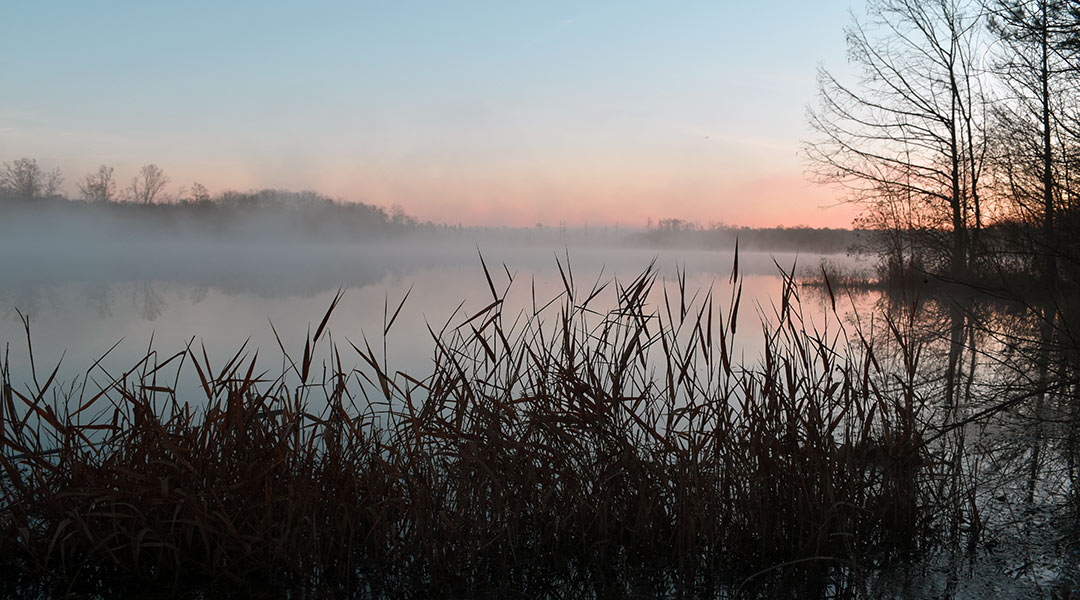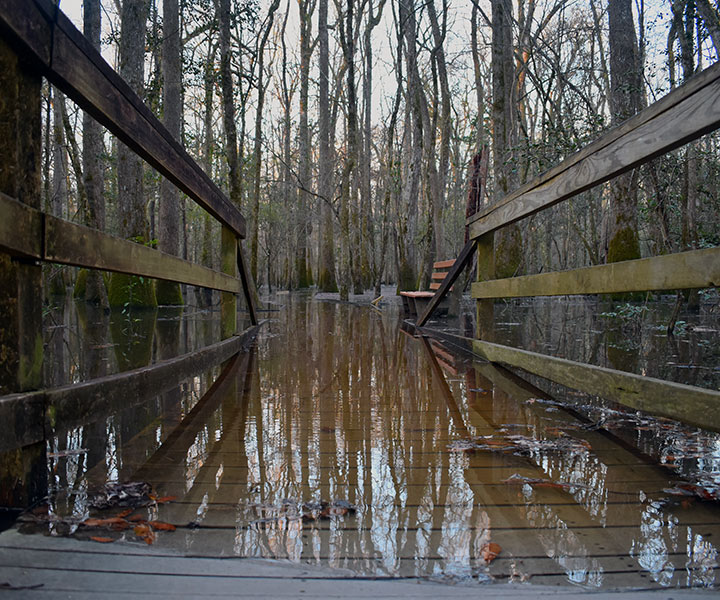If legislators are able to pass the Conservation Enhancement Act, more natural landscapes could receive government protection. (Photos by Danielle Cahn)
Environmental groups in South Carolina are hopeful that this year might bring new legislation to aid conservation efforts.
Here are the bills and priorities environmental groups say could be a big win for conservation in the state.
Transitioning to clean energy
South Carolina’s two electrical providers, Duke Energy and Dominion Energy, raised utility rates for S.C. customers last year.
The rising cost of fossil fuels is the problem, spokeswoman Rachel Chu of the Southern Environmental Law Center said in a press release.
The law center is collaborating with the Conservation Voters of South Carolina to encourage providers to create energy more efficiently in South Carolina – and possibly look to new sources.
“We’ve got to reevaluate the way that we manage our electric grid … so that we can incorporate more renewable energy like solar or even possibly wind,” said Meagan Diedolf, the government relations director for the Conservation Voters of South Carolina. “And that’s not just going to have an effect on our environment. But it’s also going to lower our electricity bills because we have a real problem with energy poverty across the state.”
There aren’t yet many active bills regarding a transition to clean energy. Environmental advocates expect that to change soon.
The Electricity Market Reform Measures Study Committee, which the legislature created to recommend changes to the utilities market, will share its results next Tuesday.
“I think it’ll definitely impact the bills that are being proposed,” said Eddy Moore, the energy program director for the Coastal Conservation League. “One of the main ways (to increase competition) is utility companies being included in a regional electricity market, … which means that the more efficient plants run more and the less efficient plants run less.”
Introducing this regional approach could open the door for more renewable energy sources in addition to decreasing cost to consumers.
“Multi-state markets will have one set of rules across multiple utilities, and those rules are required to be technology neutral,” Moore said. “So they are not written to favor renewable resources, but they’re also not written to favor fossil fuel resources.”
If the committee presents similar recommendations, which Moore says have been effective in other regions of the country, activists can expect to see legislators respond with bills that support a multi-state utility market.
Funding land conservation
The beautiful natural landscapes of South Carolina are often cited as major draws for residents of South Carolina.
They also provide a huge source of revenue for the state.
The S.C. Department of Parks, Recreation & Tourism reported that state parks brought in $45.3 million in 2021.
Conservation Voters of South Carolina hopes there could be more opportunities for land conservation in the near future.
The Conservation Enhancement Act, which has been introduced in both the House and Senate, would direct 25 cents of every $1.30 deed recording fee to the South Carolina Conservation Bank.
The bill does not raise the fee, which is required whenever land is transferred.
The fee might seem like a small amount, but Diedolf said it could raise up to $30 million for the Conservation Bank over the next several years.
“That consistent stream of funding is going to take the guesswork out of the conservation bank’s planning,” Diedolf said. “It’s just gonna make it easier for them to engage in their work.”
The sponsor of the bill hopes the Conservation Bank will be able to take advantage of the funds to improve the quality of life for future generations of South Carolinians.
“We are losing money to development,” said Rep. Phillip Lowe, R-Florence. “As it progresses, we’re going to have less and less quality land to preserve for our children. … There is a short window in which we can preserve some of these quality lands.”
The bill has 37 sponsors, and Lowe thinks it has a good chance of passing with bipartisan support.
“I’m proud to see leadership from both republican and democrat members,” Lowe said. “That improves its chances of passing, and I’m going to push hard for that this year.”
Expanding electric vehicle access
The number of registered electric vehicles in South Carolina increased by nearly 70% between 2021 and 2022, according to the U.S. Department of Energy.
Still, South Carolina ranks in the bottom quarter of U.S. states in terms of its rate of electric vehicles on the road.
The Alternative Fuel Tax Credit bill would create incentives for businesses owners to create electric charging stations on their land.
The bill would provide a 25% tax credit on the purchase of the equipment.
The bill’s sponsor said the bill is a common-sense expansion of alternative fuel tax credits the state already offers.
“Electric vehicles are becoming more and more popular, but the infrastructure lacks the ability to handle them,” said Rep. Brandon Newton, R-Lancaster. “This bill would make charging stations much easier for developers to include.”
Diedolf predicts that this bill will be helpful to the environment, owners and manufacturers of electric vehicles, and to any businesses that take advantage of the credit.
“I think of this as being useful for the Targets and the movie theaters of the world, because if it takes 20 minutes to charge your car, I’m going to go in and shop,” Diedolf said.
The bill also might incentivize property owners to build charging stations in rural areas, where the lack of chargers makes it much more difficult to own an electric vehicle.
“We’ve got a lot of areas in the state, across the state, that have no charging infrastructure,” Diedolf said.
Newton thinks if the legislature gets to the bill, it will pass easily.
“We just added three sponsors,” Newton said. “I hope we get to take it up this year. It’s a good chance to show bipartisan support.”
The Conservation Voters are optimistic that lawmakers are ready to tackle these issues, despite a slow start in the four-month session that began in January.
“This session has been a little frustrating because both the House and the Senate are focusing on social issues almost to the exclusion of everything else,” Diedolf said. “But the environmental community has been successful at making conservation a nonpartisan issue in South Carolina. … We’re all on the same page there.”



